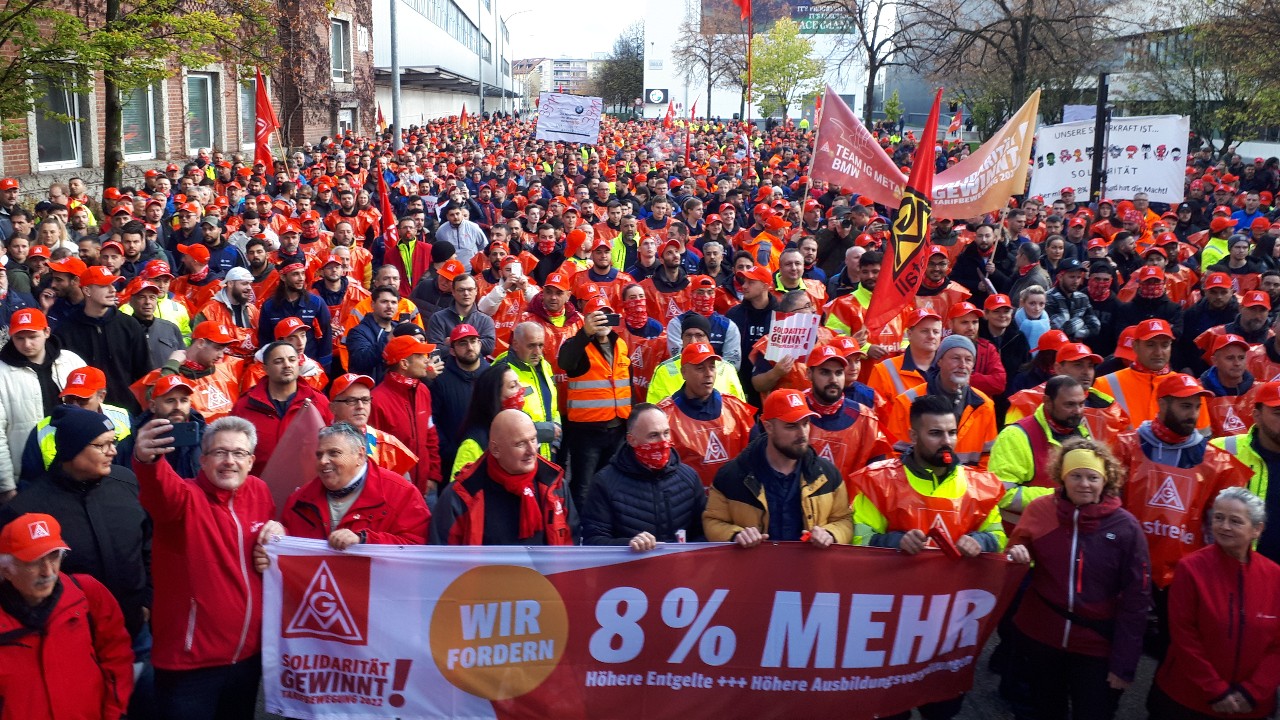Germany’s largest trade union IG Metall agreed to a pay deal below inflation in a powerhouse region today. This set the standard for 3.9 million metal and electrical sector workers nationwide. It also pointed to manageable wage pressures in the Eurozone.
IG Metall union reached an agreement with employers in Baden-Wuerttemberg, Germany’s automotive heartland, to raise wages by 5.2% beginning in June 2023. The next raise will be 3.3% beginning in May 2024. A tax-free lump sum of $3,114 will also be paid in two installments, in March 2023 and 2024.
The agreement comes after the union demanded an 8% pay increase. Raise of 8% would have been considered exceptionally generous until recently, but it is now below inflation. The inflation in Germany, Europe’s largest economy, last month was 11.6%.
IG Metall union agreement will set a standard
The pay agreement was reached after five rounds of negotiations and a series of warning strikes. The result is limited to Baden-Wuerttemberg but will serve as a model for other regions.
According to Frederik Ducrozet, head of macroeconomic research at Pictet Wealth Management, the agreement should reduce the risk of large second-round effects. That occurs when supply-related cost increases begin to affect wage demands and other prices.
If anything, the IG Metall transaction will reduce uncertainty about the medium-term inflation outlook, he added.
ECB will continue to raise interest rates
On Friday, ECB President Christine Lagarde stated that the bank would continue to raise interest rates to tame inflation. She said ECB will do that even if it means dampening economic activity. That will remain the central bank’s primary policy tool.
The pay package was “very decent,” according to Roman Zitzelsberger, IG Metall district leader in Baden-Wuerttemberg. This is a result of a difficult time with a lot of strife, wrangling, and heated debates, he said at a news conference after nearly 12 hours of negotiations.
Due to rising material and energy costs, employers do not see much room for wage increases.

